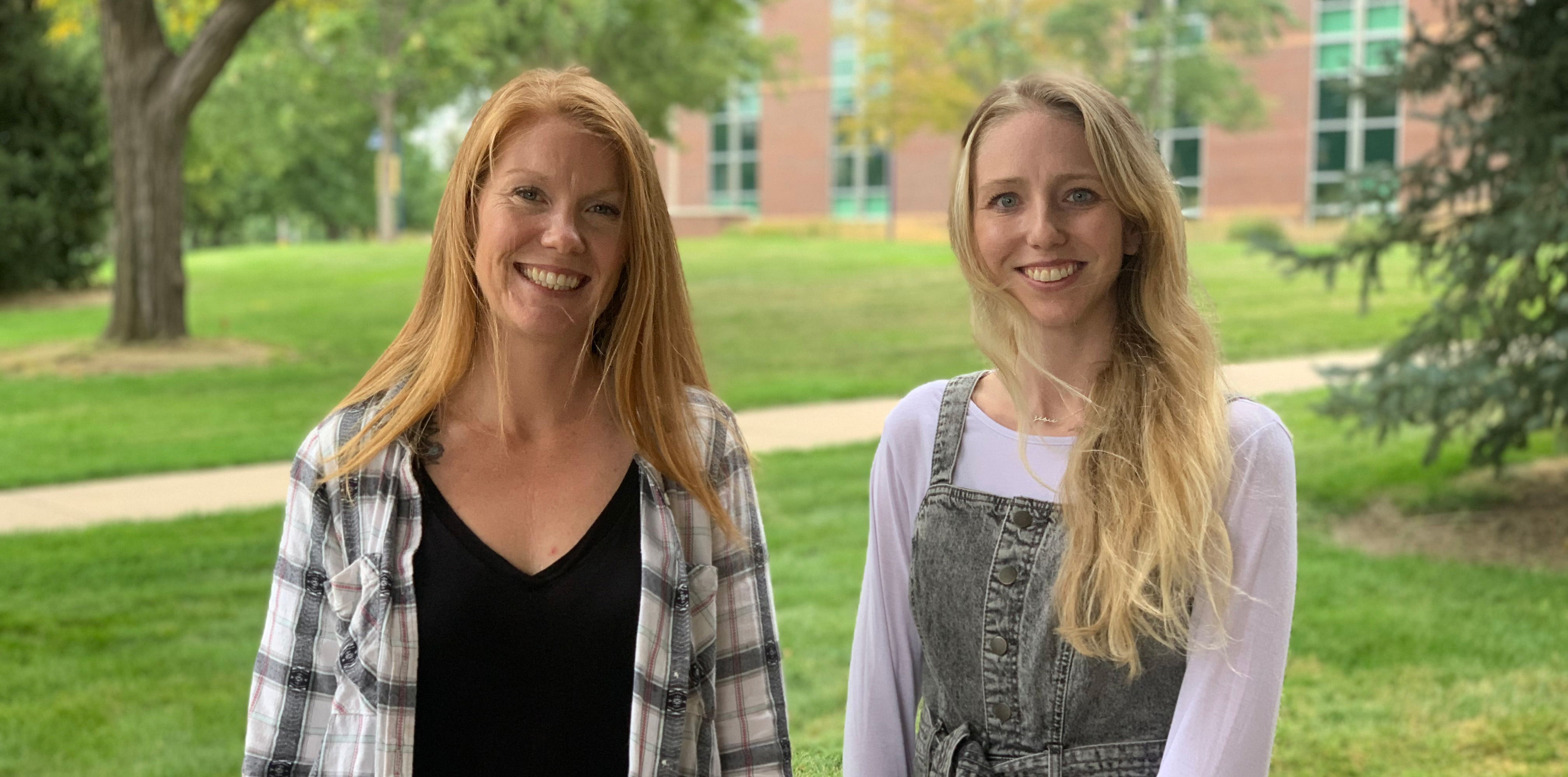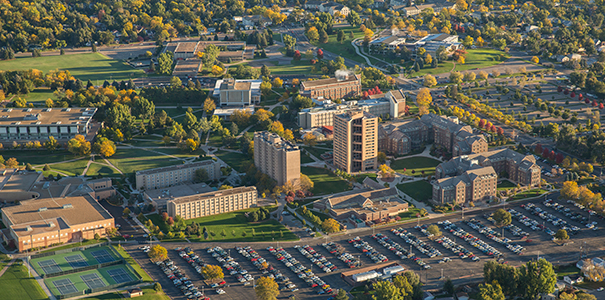
Pictured above from the left: Ashley Coburn and Breanna King
Third-year graduate students at the University of Northern Colorado (UNC), Ashley Coburn and Breanna King are on their way to becoming licensed psychologists. Before they earn a Ph.D. from the School of Psychology program, they’re taking a deeper look into a topic affecting youth across the country, especially those living in the rural mountain west – mental health.
According to the National Center for Rural School Mental Health, nearly 20 percent of school-age children experience serious mental health issues yet few receive services, a situation exacerbated in rural settings.
“I did my practicum in a rural high school so I saw firsthand how easy it can be to feel isolated in those areas,” King said.
Both King and Coburn have had experience interacting with students in a high school setting. Through that, they had access to the Colorado Department of Education Youth Mental Health First Aid (YMHFA) training. YMHFA is an eight-hour long course that introduces participants to the signs and symptoms of mental health problems in adolescents and emphasizes the importance of early intervention.
“It made me a better teacher especially given the prevalence of mental health concerns in the schools,” Coburn said.
That experience, along with what the pair are learning at UNC's WISE Wellness lab, sparked their passion to do more to support mental health in rural areas.
“Our studies are directed at suicide prevention, so we are going through the literature and learning that rural suicide prevention specifically is often overlooked. That’s really disheartening because the suicide rates are almost twice what they are in urban and suburban areas,” Coburn said.
A grant from the National Council for Mental Wellbeing is helping Coburn and King take action. They were awarded, out of more than 200 applications, a $5,000 grant to support their research project that will improve mental health first aid training and outcomes in rural mountain west towns.
“The idea is to determine if the training that is already established is as effective in these rural areas or does it need to be modified in some way to better suit those schools,” Coburn said.
Over a two-year period, Coburn and King are going to identify trainers already certified in YMHFA, have them implement the training in rural schools with students 12 to 18 years old in Colorado, Wyoming, Montana and New Mexico and then conduct pre and post surveys and focus groups to see if the school personnel found it useful or where changes need to be made.
“We just want to see where the gaps are in this training, and what is working well because the training has strengths too,” King said.
An issue Coburn and King have already come across is some school districts in rural areas have limited access to resources.
“We’re finding that rural school districts vary in the number of school personnel that they have,” Coburn said. “For example, one school district has a principal who is also the bus driver, so they may be working with 10 personnel overall.”
Which is why the graduate students want to bridge the gap and break down barriers rural educators are facing and provide them with the tools they need to help make mental wellness a priority. In King’s experience just starting a conversation about mental health can be beneficial.
“Even if the students don’t want to talk about it, just letting them know an adult is there if they want to open those doors and letting the kids know it’s a safe place where they can feel protected and they can talk openly about anything they’re struggling with is huge,” King said.
King says all it takes is for one trusted adult to make a difference in a child’s life.
“I know teachers and school psychologists are all really burnt out, it’s been a hard couple of years for them, so I think it will do wonders to reinforce the fact that you can change a kid’s life and having this training just in the toolbox to turn to in addition to all of the other tools you have in a school setting,” King said.
The pair will release results from their research in 2024. Three other graduate students across the nation received the same research grant. When announcing the recipients, the National Council for Mental Wellbeing vice president applauded all of them for their commitment to mental wellbeing.
“These doctoral students submitted innovative proposals for measuring Mental Health First Aid (MHFA) program outcomes, and their wide-ranging academic interests will help us understand the impact MHFA is having in diverse communities,” Deanna Roepke said.
– written by Sydney Kern
More Stories
-
Governor Polis Reappoints Monfort and Campos-Spitze to UNC’s Board of Trustee
Este artículo no está en español.
-
UNC Choirs Brings Together Guest Musicians, Alumni, Students and Faculty for Major Works
Este artículo no está en español.
-
Week-Long Celebration to Honor First-Generation College Students
Este artículo no está en español.
-
UNC Arts to Host “The President’s Own” United States Marine Band
Este artículo no está en español.




